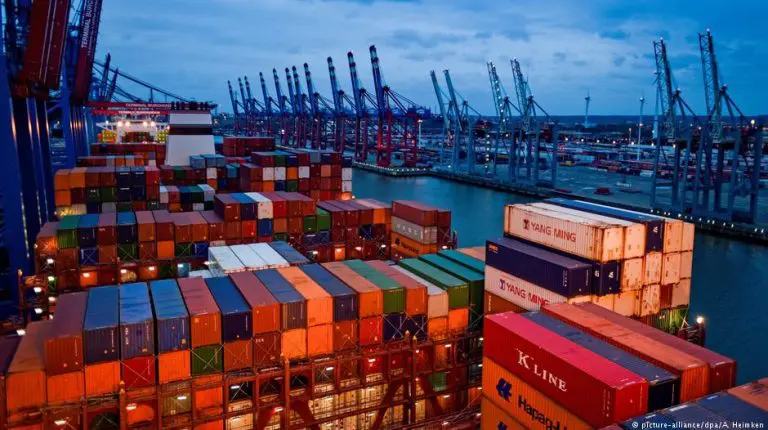Egyptian exports to Libya hit $572M in 2020

Egypt’s exports to the Libyan market amounted to about $572 million in 2020, according to Egypt’s Minister of Trade and Industry, Nevine Gamea.
Gamea added Monday that the most important export items included cement, food-stuff, machinery, electrical equipment, aluminum and its products, tanning materials and plastics.
She pointed out that the Libyan market is one of the largest markets receiving Egyptian exports, ranking 11th globally and fourth in the Arab world.
“Egypt and Libya are linked by fraternal and strategic bilateral relations based on a long history of understanding, consensus of visions and joint cooperation in various fields and at all levels,” the minister noted.
The Egyptian minister indicated, in a statement, the importance of translating all the agreements signed between the two sides into concrete cooperation projects in the interest of the two brotherly peoples, especially in light of the great interest of the political leadership in the two countries to achieve a qualitative leap in the level of joint economic relations and to contribute to the development of the two economies.
This came during the minister’s expanded meeting with the Libyan Minister of Industry Ahmed Abu Hessa and his accompanying delegation, which dealt with ways to enhance economic relations between the two countries in the sectors of industry, trade and investment.
The minister said that the meeting dealt with ways to enhance cooperation between the two countries in the field of establishing, developing and operating industrial zones and the possibilities of transferring the great Egyptian expertise in this regard to Libya, noting that Egypt currently possesses all the elements supporting the industrial sector, which include infrastructure, energy availability, policies and the industrial environment in addition to qualified workers.
For his part, Ahmed Abu Hessa, Libyan Minister of Industry, affirmed his country’s keenness to strengthen joint relations with neighboring countries, especially with sister Egypt, which represents the Arab, national and geographical dimension of the State of Libya, pointing out that Libya aims to enhance commercial and industrial cooperation between the two countries to unprecedented levels that reflect the distinguished relations connecting the people and governments of the two countries.
He pointed to the ministry’s keenness to transfer Egyptian expertise to the Libyan industry, in particular the localization of the Libyan industry, the establishment of industrial zones, and the development of a system of legislation stimulating investment, pointing out that Libya is looking forward to a major Egyptian role in its development projects, especially as it possesses many capabilities and ingredients that qualify it to be one of the countries that attract investment in the region. he mentioned that the capabilities include the privileged location and availability of raw materials for the industry, as there are pioneering investment opportunities in the fields of petroleum, mining, iron and steel, cement and marble.
Abu Hessa said that his country is keen to strengthen the partnership between the private sector in Egypt and Libya to contribute to the development and development of the economies of the two countries, expressing his hope that Egyptian companies will have the largest share to achieve the desired development of the Libyan economy, which will achieve the common benefit of the two brotherly peoples.
How to submit an Op-Ed: Libyan Express accepts opinion articles on a wide range of topics. Submissions may be sent to oped@libyanexpress.com. Please include ‘Op-Ed’ in the subject line.
- Tunisia begins major migrant camp clearance - April 05, 2025
- Morocco and Mauritania airlines sign strategic partnership agreement - April 05, 2025
- Libya under Russian and Turkish occupation, says Al-Koni - April 05, 2025


